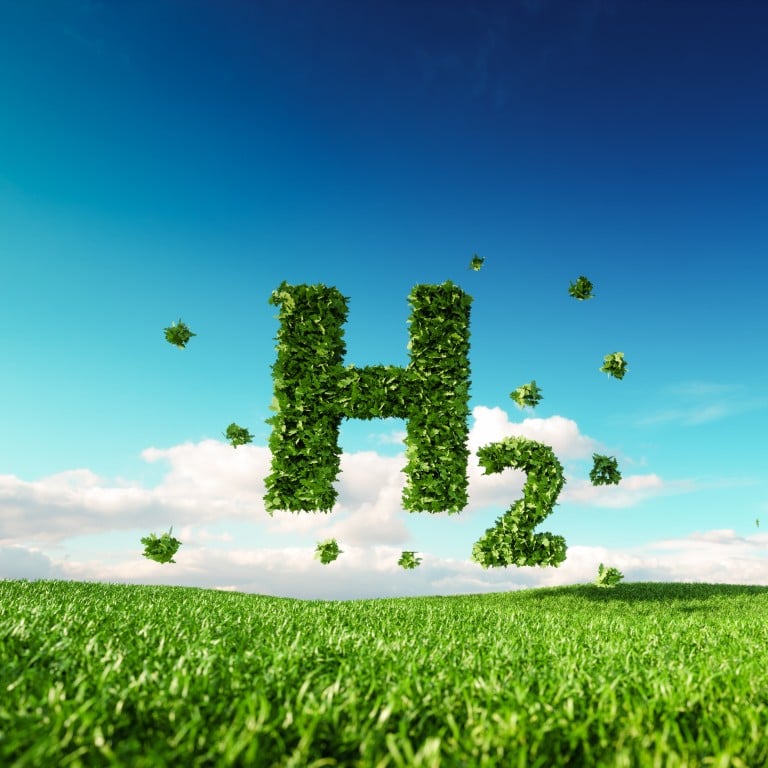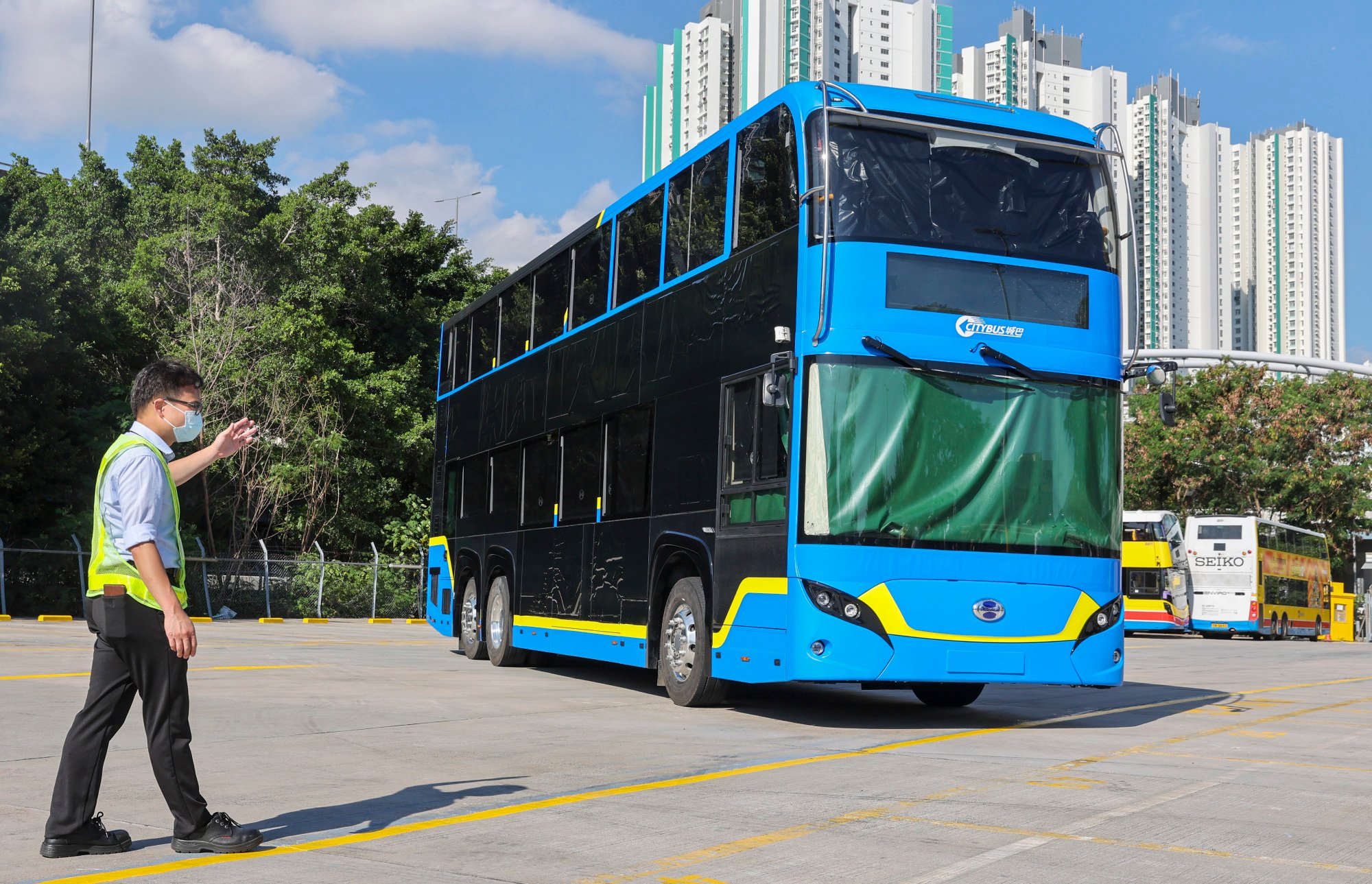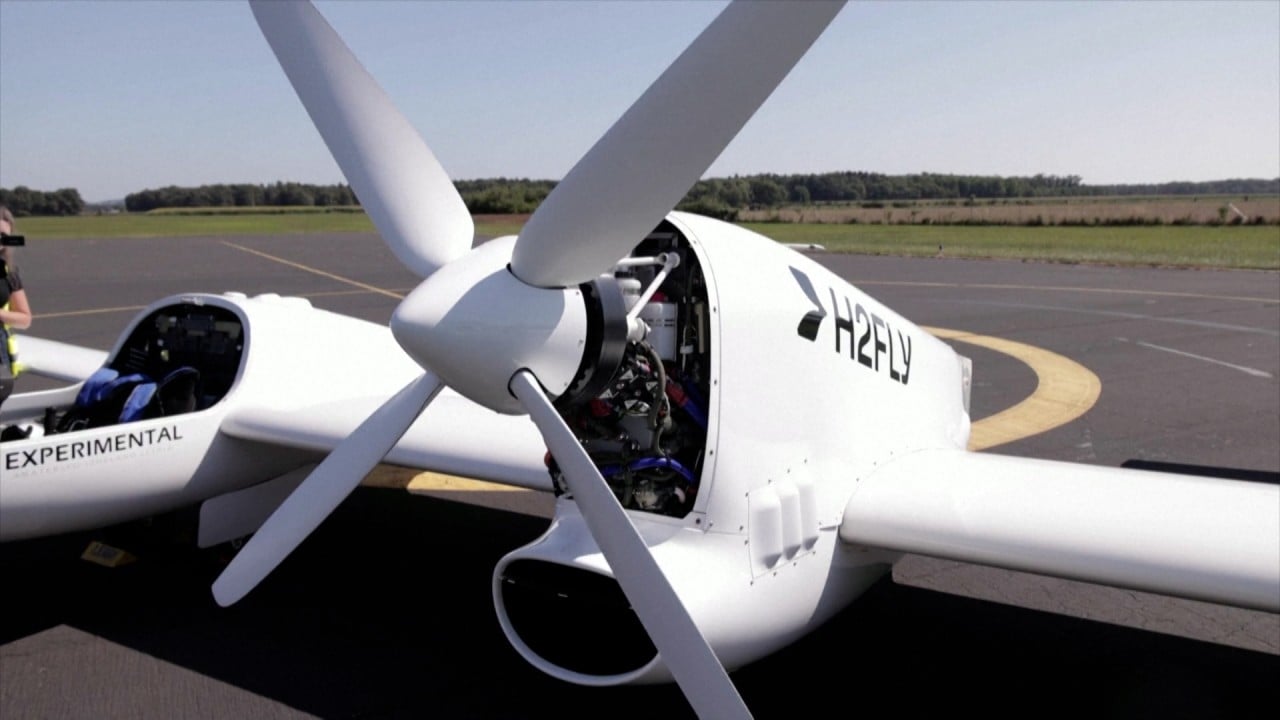
Hydrogen has way to go before it emerges as a truly green fuel for powering Hong Kong’s public transport, expert says
- Safety, reliability and cost are the biggest challenges in the commercialisation of hydrogen, says Rory Meng of TUV Rheinland
- Hydrogen is expected to make its debut as a clean-burning fuel on a pilot bus in Hong Kong by the end of the year
Most hydrogen is currently made using fossil fuels like coal or natural gas. “Green” hydrogen is produced using electrolysis that splits water into hydrogen and oxygen using renewable energy, which is expensive as the supply chain is being built.

While hydrogen derived from fossil fuel has zero roadside emissions, the carbon footprint from its production can be substantial.
TUV, established 150 years ago in Germany as a steam boiler safety inspection body, has expanded into a global third-party testing, certification, training and consulting body for multiple industries.
It acts as technical adviser to Citybus, which will introduce Hong Kong’s first fleet of hydrogen buses, and various Hong Kong government departments on their safety and performance issues.
Hydrogen is expected to make its debut as a clean-burning fuel on a pilot bus in Hong Kong by the year-end. The bus is currently undergoing retrofitting and inspection in Zhangzhou, Fujian province.

The government is working on building a legal framework for transporting hydrogen in Hong Kong to ensure safety by referencing standards in mainland China and overseas, while incorporating demands from the city’s crowded urban environment, Meng noted.
However, forecasting a precise time frame for mass commercialisation of hydrogen vehicles in Hong Kong and other markets is difficult, he said.
“Governments in places like China, Europe and North America have set 2025, 2035 and 2050 penetration targets for hydrogen vehicles, but can they really be reached?” he said. “As engineers, we have many questions.
“It is not that we believe they will not succeed, but there are many uncertainties on whether the technological and cost barriers will be effectively resolved within the time frame.”
Supply chain challenges such as storage and transport of hydrogen, both entailing safety, cost and community impact issues, need to be tackled.
For Hong Kong, which has no commercial hydrogen production facility, bringing supplies from producers in Guangdong province is one of the better options initially when volume is small, Meng said.
In the long term, long-distance piping of supply from mainland China or importing green hydrogen by tankers can potentially be justified, he added.
Citybus planned to operate electric and conventional diesel double-deck buses on the same route as its hydrogen fuel cell buses, with a view to comparing their operational performance, the government said in August. Citybus is building the city’s first hydrogen refuelling station.
Although the development of battery-powered passenger vehicles is highly mature in terms of range, reliability and costs, they have yet to prove a decisive edge in the commercial vehicle market, Meng said.
“For battery-powered buses and trucks, the rate of battery capacity and range improvement for the same amount of investment spent has slowed down substantially,” he said. “Also, batteries with the largest capacity tend to carry higher fire risk.”
For hydrogen buses, which are still in the early stages of commercialisation, there is still plenty of room to expand the range by simply increasing the number of fuel tanks, without the same kind of safety risk escalation as electric buses, he added.


